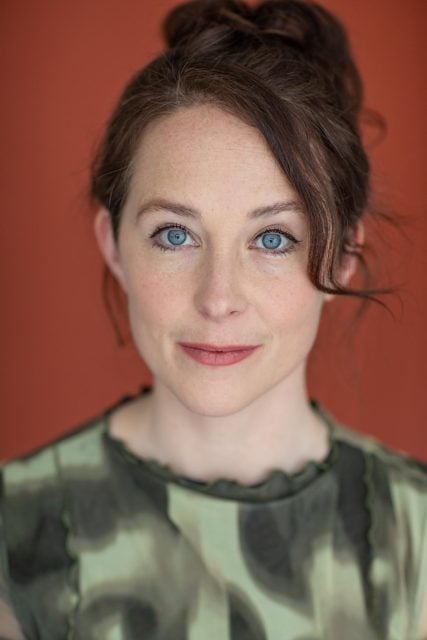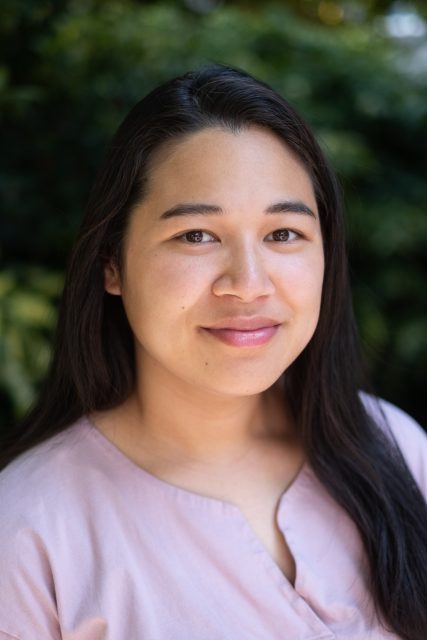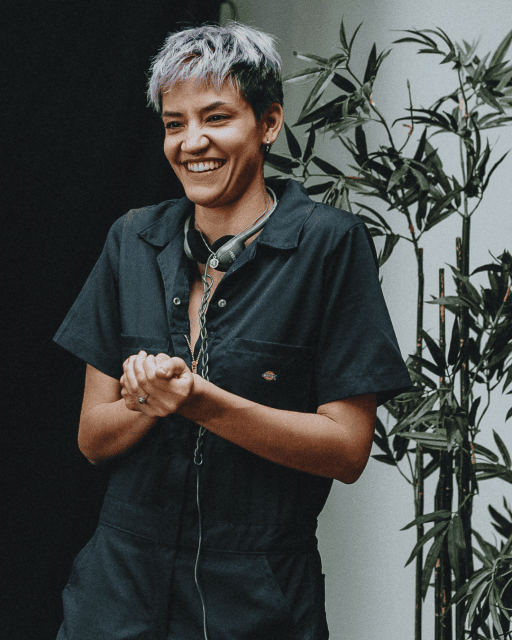Creators Give Series Accelerator High Marks
Imagine you’ve come up with an original and entertaining idea for a digital/television series.
It turns out that was the easy part.
Bringing that series to screens requires a vast amount of industry knowledge, and some help.
That’s why the Canada Media Fund teamed up with the Toronto International Film Festival to create the TIFF Series Accelerator program, a two-day workshop designed for teams of emerging Canadian creators focusing on refining their series pitch, developing ideas and strategies for finding international partners and working with renowned entertainment industry mentors.
The second annual Series Accelerator program was held this past September during TIFF, with eight teams — consisting of one producer and one writer — diving headlong into the intensive program.
Now & Next caught up with some of the participants to talk about the experience, how their projects are shaping up and what advice they would give to creative teams applying for the 2024 TIFF Series Accelerator program.
“It was a fascinating two days of meeting so many different industry leaders from across the globe,” says Heidy Lynch, the acclaimed actor/writer best known for her work as a co-creator and co-star of the web series Avocado Toast.

Lynch and her writing partner, Cosima Herter, brought their erotic thriller series, A Confusion of Tongues, to the program.
“We had developed it originally as a feature film and gotten some interest, but as we were developing it, it just became more exciting to write it as a series,” she says. “It’s very dark. Cosima is incredible at trend forecasting and television. She comes from a very academic background. Two years ago, she said erotic thrillers are going to be the next boom. And then shows like Fair Play and Basic Instinct came out.
“It’s interesting, shows have such a long development trajectory, and then the trend's gone. They have to be in development five years before the trend hits. But no matter what, the most important thing is you must be passionate about, and really love, your project.”
What really inspired Lynch during the program was getting the chance to talk to producers whose work she admired.
“It was amazing to learn from Joe Lewis, he's the person who said yes to Fleabag. Fleabag changed my life as a writer, producer, and a woman in what I think is possible. And he worked on Transparent, which is another show that changed my worldview and made me feel like I could make television, and there would be an audience for it. It was so great to have him in the room.”
Vancouver-based producer Thea Loo and writer Rosie Choo Pidcock have teamed together to adapt Pidcock’s 2021 short film, Esther & Sai, into a series.

“Esther & Sai is about two young immigrant women who come from abroad to nursing school in Canada in the 1970s” explains Loo. “They become friends by default because they're both from away, and together they have to navigate college life in the 1970s, which really doesn't necessarily line up with their immigrant expectations.”
Loo says the program gave her insights into what it takes to bring their show to a wider audience outside Canada.
“We had a session with Sanjay Sharma, the CEO of Marginal Mediaworks, who is from the States,” says Loo. “He really broke down for me what it looks like to go out into the market, beginning to shop it around, and he outlined what it's like to do that in the States, what a good strategy would be, is there a certain kind of timeframe that you're looking at. There's a lot of research you need to be doing. This is something that I never really learned when I did other mentorship programs in the past.”
The program is unique in that each team can connect with, and see, how other teams interact.
“It was nice to see the dynamics, no project is made the same way,” notes Loo. “Some people have writers that are really leading the charge and some people have producers that are leading the charge. It doesn't really matter which way you go.”
“There was definitely a mixed level of experience in the groups,” says Lynch. “When you're doing diversity initiatives, that is going to be the case because certain groups have been gatekeeping the industry for a very long time, and I think part of the program's goal is to give opportunities to people who may not have teams of mentors that fit their exact voice and demographic, and to champion them and their new ideas.”
“I was just so excited to get to talk to all these people in my cohort, never mind some of the speakers,” says Pidcock. “It was cool to be with people that have so much more experience than we do and just learn. I'm a very process-oriented person, and we got to hear everyone's pitch, and I think crafting a pitch is such an art, it's such a critical skill to have because you are trying to sell your show or get bigger production companies on board. We spent a lot of time with the cohort and with people that came in to coach us on how to go about that.”

All three participants agreed the biggest takeaway from the program was that refining their show pitch is paramount.
“It’s about the mechanics, who says what, and how we share our story because there's so many amazing parts to it,” reveals Pidcock. “Oftentimes you have to lay a trail of breadcrumbs for producers and broadcasters, so they're interested to ask questions. You don't want to reveal everything in the pitch. You just want to give them enough that they're hungry for more.
“I would say that's the biggest growth area that Thea and I have seen from TIFF, it really forced us to craft our pitch,” she continues. “We've been subsequently refining it since then and have actually gotten to pitch to six or seven production companies in the last month.”
And a great pitch is not just for TV executives. Lynch advises those thinking of applying for this year’s Series Accelerator program have their pitch refined and ready to go.
“I would say be as concise and clear as possible in your pitch document. And practice an oral pitch before the first day,” she says. “And no longer than eight minutes. If you can't do it in eight minutes, you're in trouble. You need to know the heart of your show, and why you and why now. Your personal connection to the story. If you can hit those four beats in eight minutes, you'll be ready to absorb the best from the program.”



